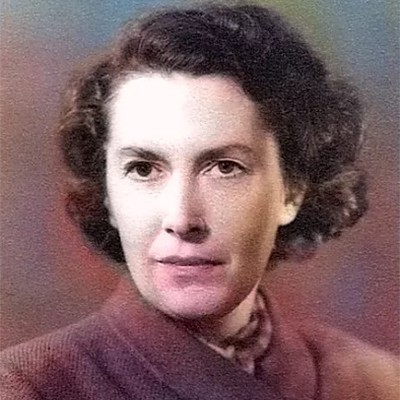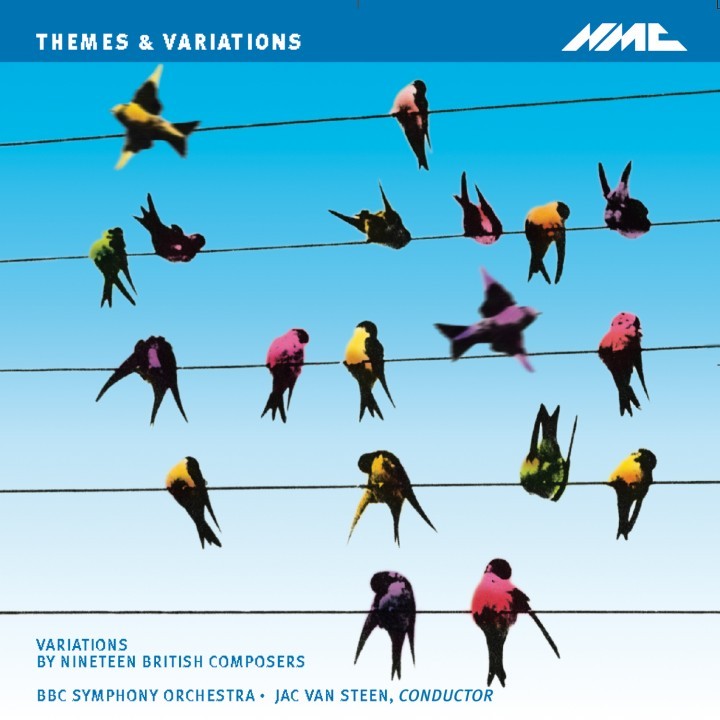Grace Williams
Grace Williams was born in Barry, Wales, in 1906, and died there in 1977. She was educated at Barry Grammar School and University College, Cardiff, where she took a BMus in 1926 before continuing her studies with Ralph Vaughan Williams and Gordon Jacob at the Royal College of Music in London, and with Egon Wellesz in Vienna. For a number of years she taught in London at the Camden School for Girls and at Southlands College of Education, before returning to Wales in 1946. She then worked on educational programmes for the BBC, but her main activity was as a composer. She wrote most of her major works in response to commissions from the BBC, the Royal National Eisteddfod and festivals at Llandaff (Cardiff) and Swansea.
Grace Williams' output is mainly for orchestra and for voices with orchestra, although she also wrote several songs. Before about 1955 her music was to some extent influenced by her teacher, Vaughan Williams. Elgar is another perceptible influence, and there are even passages of chromatic writing reminiscent of Strauss. Folksong is encountered in several vocal settings and in the orchestral Fantasia on Welsh Nursery Tunes, a frequently played piece that loosely strings together a number of Welsh tunes in the manner of a Sullivan overture.
Penillion for Orchestra, written for the National Youth Orchestra of Wales in 1955, inaugurated a period of greater maturity and more pronounced individuality, and it is for this work and those written after it that Grace Williams is most likely to be remembered. Many of these later pieces are deeply national in feeling - although they include no actual folk melodies they are subtly but strongly shaped by the rhythms and cadences of old Welsh poetry and oratory.
Grace Williams was born in Barry, Wales, in 1906, and died there in 1977. She was educated at Barry Grammar School and University College, Cardiff, where she took a BMus in 1926 before continuing her studies with Ralph Vaughan Williams and Gordon Jacob at the Royal College of Music in London, and with Egon Wellesz in Vienna. For a number of years she taught in London at the Camden School for Girls and at Southlands College of Education, before returning to Wales in 1946. She then worked on educational programmes for the BBC, but her main activity was as a composer. She wrote most of her major works in response to commissions from the BBC, the Royal National Eisteddfod and festivals at Llandaff (Cardiff) and Swansea.
Grace Williams' output is mainly for orchestra and for voices with orchestra, although she also wrote several songs. Before about 1955 her music was to some extent influenced by her teacher, Vaughan Williams. Elgar is another perceptible influence, and there are even passages of chromatic writing reminiscent of Strauss. Folksong is encountered in several vocal settings and in the orchestral Fantasia on Welsh Nursery Tunes, a frequently played piece that loosely strings together a number of Welsh tunes in the manner of a Sullivan overture.
Penillion for Orchestra, written for the National Youth Orchestra of Wales in 1955, inaugurated a period of greater maturity and more pronounced individuality, and it is for this work and those written after it that Grace Williams is most likely to be remembered. Many of these later pieces are deeply national in feeling - although they include no actual folk melodies they are subtly but strongly shaped by the rhythms and cadences of old Welsh poetry and oratory.
Compilations with this composer
CompilationsRelated composers
Related composersExternal Links
Music Map
Discover more about the classical music of today with NMC's Music Map, and exciting and educational online tool which enables you to see and hear the connections between composers, their teachers, pupils, influences and their works.
Music Map



